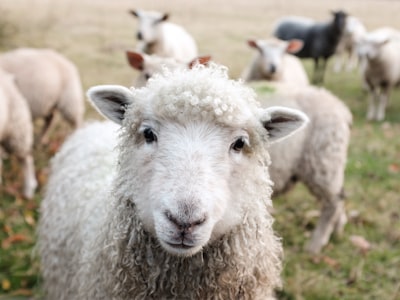Some of your clients have careers that come with unique insurance needs. Farm and ranch owners need home insurance as well as other coverages specified to the farm or ranch. Knowing what coverages a farm or ranch needs is crucial to offering your unique clients home insurance.
What Does Farm Insurance Cover?
Farm insurance — which can apply to ranches as well — is essentially a policy that packages different coverages tailored to the farm’s needs. It includes both <homeowners insurance coverage> and <business insurance> coverage. Those needs include: 
- Standard homeowners insurance: This includes property coverage for the farm dwelling and its attached structures to protect against disasters such as fire, hail damage, windstorm damage and burst pipes.
- Liability: This is a requirement for farms and ranches. It helps cover costs due to bodily injury and property damages. Accidents concerning animals and heavy machinery are frequent and can cause a lot of damage. If a handler gets injured or an animal escapes to cause damage to someone else’s property, liability insurance steps in.
- Other structures coverage: A farm typically comes with a lot of separate structures, such as barns, silos and chicken coops. Other structures coverage provides the same cover as property damage protection to these detached buildings.
- Farm machinery/equipment: If farm machinery or equipment breaks, it can cost a lot to replace it. Therefore, having farm machinery and equipment insurance is crucial to replace the broken or lost pieces.
- Livestock: Livestock can be pricy, depending on the animal. Horses alone tend to cost thousands of dollars. If livestock is injured or killed, livestock insurance can provide monetary compensation.
- Farm products: This coverage can help replace lost or ruined farm products — such as feed, grain and seed.
It’s always a good idea to inspect the farm or ranch before deciding on a policy or giving a quote. Some farms have more livestock, which will require more livestock and liability insurance. Some have a lot of fencing while others have none.
Optional coverages you should inform your client about include:
- Fencing Coverage. This doesn’t always come with farm insurance. Even so, farms with a lot of fencing should consider adding it to their policy. It may not be worth it for small wooden fences — as the cost of replacing it may be relatively little. But farms that get frequent tornadoes or use electrical fences may want to invest in this extra coverage.
- Commercial auto insurance. Farms rely heavily on transportation. Personal auto insurance won’t always cover farmers or their employees if they get in a wreck while driving for work. Commercial auto insurance supplies auto insurance coverage for farm trucks and similar vehicles.
- Additional Livestock Coverage. In general, livestock coverage will only cover livestock that is lost or killed due to a short list of incidents. Depending on the farm’s location and needs, extra livestock coverage can also be useful in cases concerning shooting accidents, vehicles striking the livestock, floods, earthquakes and wild animals.
- Equine Coverage. This provides coverage for horses whether they die, are stolen or injured.
- Loss of earnings. If a farm is unable to operate due to a disaster, loss of earnings coverage helps compensate the farm owner for the earnings lost during the time that the farm is inoperable.
As you can see, there are an array of coverages available to farm and ranch owners. Homeowners and business owner’s policies offer useful coverage to these clients. Each farm and ranch is different in its own way. So, it’s important to speak with your client about their insurance needs and inspect the property to decide how much coverage they need.